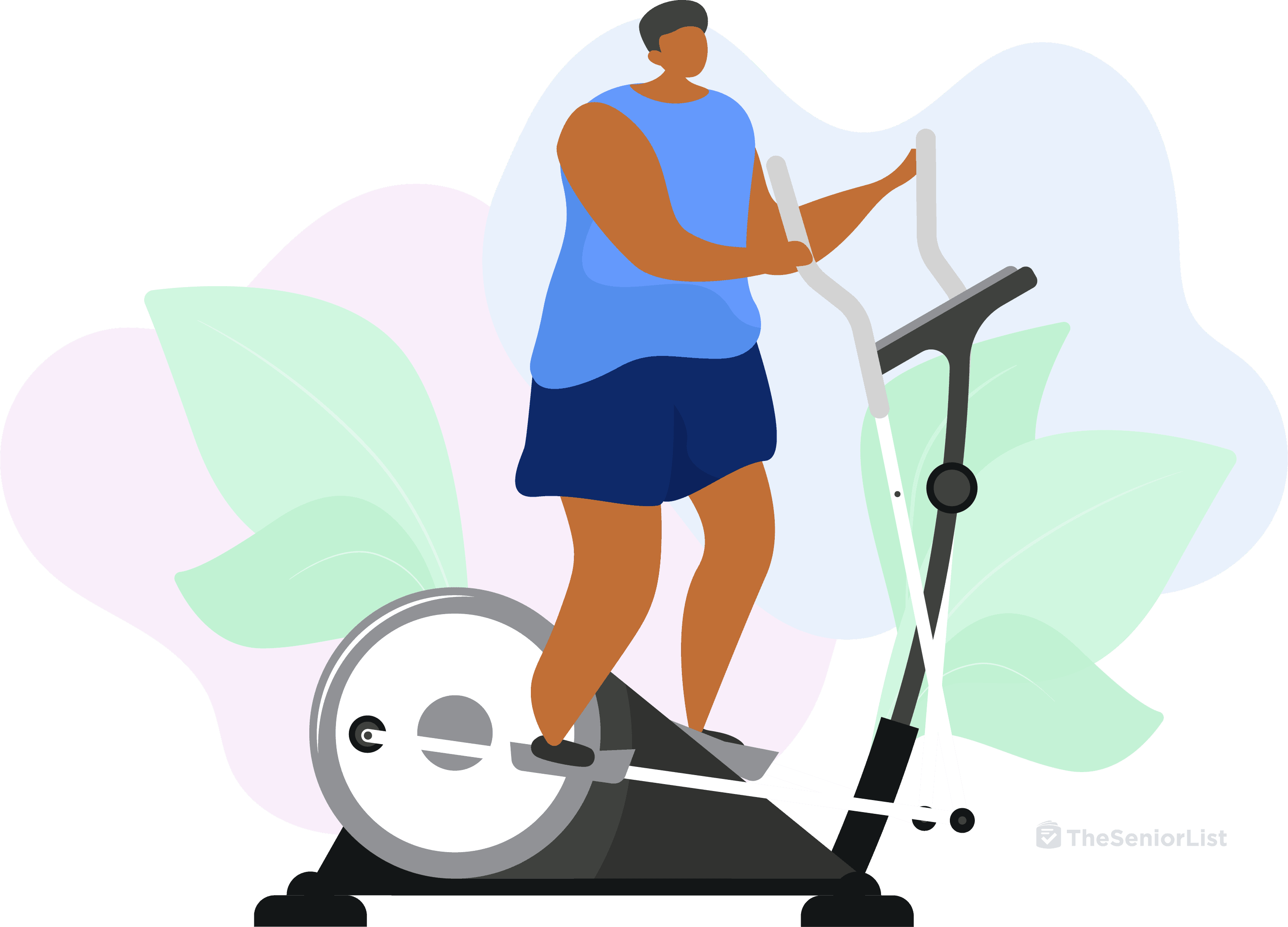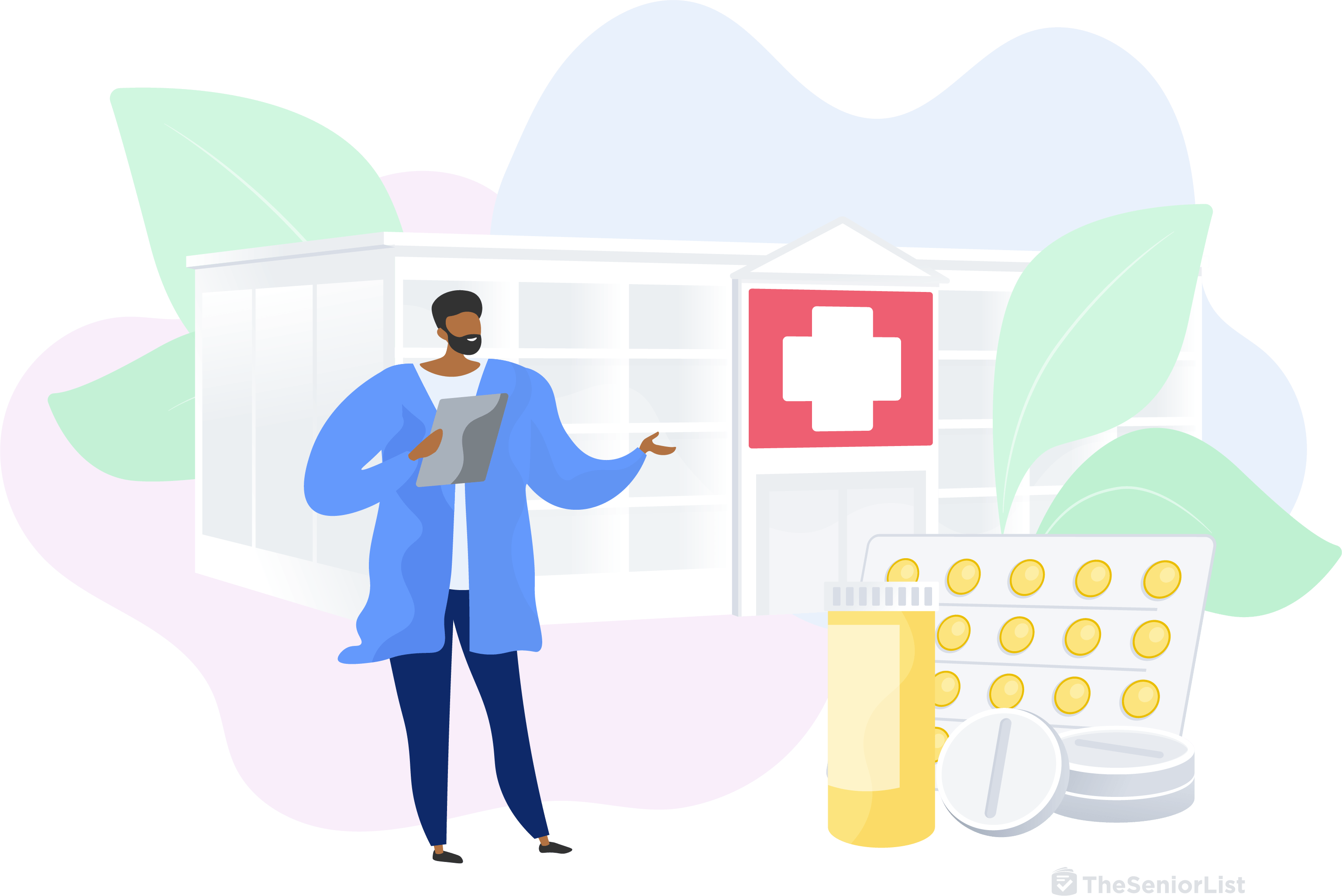8 Simple Ways for Seniors to Improve Their Health
As we age, certain changes are inevitable; however, it’s never too late to start adopting healthy habits. Through small changes to their daily routines, seniors can improve both their mental and physical health.
Pro Tip: Summer comes with its own set of safety risks for seniors. To learn more, read our guide to senior summer safety.
Establish a Healthy Sleep Routine
While many people assume that seniors need less sleep than younger folks, this is not the case. According to the National Institute on Aging, seniors need seven to nine hours of sleep each night; however, chronic pain or medications often prevent seniors from obtaining this.
It’s hard to overstate just how many aspects of your health are impacted by insufficient sleep. Stress, concentration, memory, and depression can all be improved by obtaining regular, restful sleep. Getting regular sleep can also help prevent the risk of falls.
To establish a healthy sleep routine, try the following strategies:
- Go to sleep at roughly the same time every night. This helps get your body settled into a schedule.
- Refrain from napping in the afternoon or evening, as this can keep you from sleeping at night.
- Avoid the television and other screens before your bedtime; instead, read a book or take a bath.
- Avoid eating right before bed.
- Avoid drinking when possible, as alcohol makes it harder to stay asleep.
Don’t Neglect Hearing Health
It’s no surprise that, as we age, our vision and hearing aren’t the same as when we were a kid. However, when hearing loss begins to impact your ability to socialize and engage in daily life, you’ll want to see an audiologist and get fitted for hearing aids.
Untreated hearing problems can lead to complications like a weaker brain. Hearing is a huge factor when it comes to brain functionality. While your ears hear sounds, your brain is the organ doing the processing.

You also have a higher risk of getting Alzheimer's and dementia, as a leading cause is brain atrophy. Treating hearing health also helps prevent mental exhaustion and increases your emotional health.
FYI: Hearing aids don’t have to break the bank. To learn more, read our guide to the best cheap hearing aids.
Get Active
For people of any age, regular physical activity is one of the best ways to boost the immune system, reduce inflammation, and fight off infections. The activity you partake in doesn’t have to be strenuous, as low-impact exercises like swimming and yoga can also bring about these benefits.
Currently, the CDC recommends that older adults participate in moderate-intensity exercise for about 20 to 30 minutes per day, a goal that’s easy to accomplish with a morning or evening walk. Even if you’d prefer to stay indoors, a treadmill or elliptical could be an equally effective option.
When participating in exercise, however, you’ll want to be sure to stop or slow down when experiencing pain or discomfort. Many exercises can be modified to be performed in chairs.
Eat a Balanced Diet
Overall, your body needs to receive the proper nutrients (carbohydrates, fats, proteins, vitamins, minerals, and water), which is why a balanced diet is crucial as we age. Further, a balanced diet supplies you with energy, manages your weight, and prevents some diseases, like osteoporosis, high blood pressure, heart disease, type 2 diabetes, and certain cancers, from forming.
These changes can be as simple as the following:
- Eating high-nutrient foods without a lot of calories (e.g., fruits/veggies, seafood, lean meat, eggs, beans, seeds, and fat-free/low-fat milk)
- Avoiding empty calories with few nutrients (chips, baked goods, alcohol, and candy)
- Choosing foods that are low in cholesterol and fat, especially saturated and trans fats
- Drinking lots of liquids to avoid dehydration
- Becoming physically active
Mind and Manage Stress
Managing stress (whether physical or emotional) isn’t easy at any stage in life, so it’s important you know how to do so in a healthy manner as you age.
While more subtle, emotional stress can have severe consequences, especially if it’s chronic. Even if it’s physical, there are simple measures you can take to give you a better chance at a long and healthy life:
- Maintain a positive outlook.
- Stay close to friends and family.
- Physical activity.
Obtain Vaccinations
Naturally, as you age, your body naturally becomes weaker, making it harder to fight infections. Vaccinations are required for a number of reasons, like protecting against diseases such as the flu, COVID-19, tetanus, and shingles. They’re also used for other medical instances like allergies or diabetes.
While you receive most of them when younger, you may need booster shots. For example, the CDC recommends you get a Tdap (tetanus, diphtheria, and pertussis) or Td (tetanus, diphtheria) booster every 10 years.
If you’re looking to learn more about which vaccines to receive, when, and why, visit the HHS’ website.
Schedule Annual Physicals
Scheduling annual physicals should be of utmost importance. If you’re over 40, doctors strongly suggest you receive one yearly to conduct a basic checkup (vision, hearing, overall health assessment).
You should also regularly schedule preventive care screenings (e.g., cholesterol, PAP test, prostate cancer). Other screenings to consider are the following:
- Colon cancer
- Hepatitis C
- Abdominal aortic aneurysm
- Bone density
Bottom Line
Overall, there are many precautions you can take to ensure you live a long and healthy life in your golden years. Going to yearly checkups, socializing, getting active, and establishing a healthy sleep routine are easily achievable.



Socialize Regularly
Socializing is extremely important at any age, but especially when older. Research has shown that it plays a large role in your overall health, helping to boost the quality of life (both physical and mental).
In fact, regular socialization can help improve memory and longevity because it reduces stress and isolation. A great way to stay social is to see if your community has special events or senior centers. There you can have the opportunity to do different activities like exercise and cooking classes.
Other great pathways can be to learn a new hobby, volunteer, travel, or embrace social media.